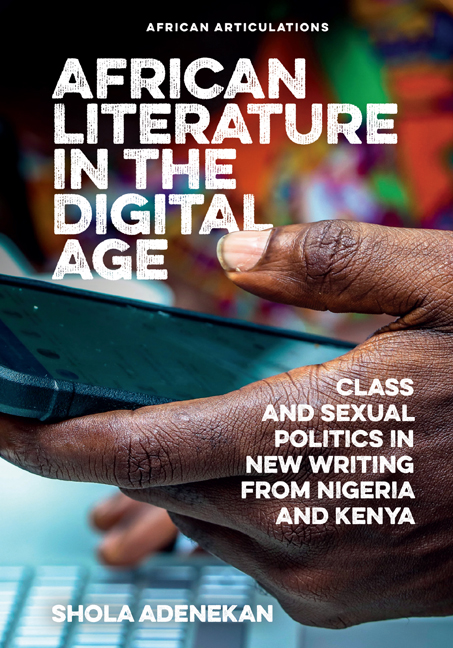 African Literature in the Digital Age
African Literature in the Digital Age In exploring African literature and allied creative works in cyberspace, we get to see the power structures in literature, within both local and global contexts. The discussion on literary networks provides a useful starting point in thinking about the dynamics of power: how it is conceived, how it is used and how it is structured. As scholars like Nyabola and Jagoda remind us: networks are not just useful metaphors for understanding global structures nor are they merely technological infrastructures that drive the information age, the world also operates as a series of interconnected, diverse communities of people. Some, of course, have more visibility than others. Within network thinking, the analysis of literary developments and the application of data from history and current affairs can be used to study what sociability in the context of African literature tells us about marginalisation and power. We can see the people who exerted influence in one way or another on African societies through their engagements with literature in particular, and the arts in general.
In African Literature in the Digital Age, we see the way in which some emerging and established voices are using literature that is published online to affirm their identity and literary heritage, by reprising the role of orature in the precolonial era through the use of new media technology. Unlike in the precolonial era, texts can now be stored and transmitted through different digital mediums. And texts are not merely spoken and written words, but they encompass audio-visual elements and are more immediate and interactive. With millions of Africans online on computers and with several millions more on mobile phones, we see how African literature in cyberspace is capitalising on this embrace of digital technologies. The literature that is coming out of the digital space suggests that many writers want a closer interaction between writers and readers of literature in a way that would have been impossible in the book age. Through literature, African cyberspace has become a site where all kinds of discussion and interaction between readers and writers can take place. Poetry and fiction in the online space become gathering points for the digital community to discuss shared history and contemporary experience.
To save this book to your Kindle, first ensure [email protected] is added to your Approved Personal Document E-mail List under your Personal Document Settings on the Manage Your Content and Devices page of your Amazon account. Then enter the ‘name’ part of your Kindle email address below. Find out more about saving to your Kindle.
Note you can select to save to either the @free.kindle.com or @kindle.com variations. ‘@free.kindle.com’ emails are free but can only be saved to your device when it is connected to wi-fi. ‘@kindle.com’ emails can be delivered even when you are not connected to wi-fi, but note that service fees apply.
Find out more about the Kindle Personal Document Service.
To save content items to your account, please confirm that you agree to abide by our usage policies. If this is the first time you use this feature, you will be asked to authorise Cambridge Core to connect with your account. Find out more about saving content to Dropbox.
To save content items to your account, please confirm that you agree to abide by our usage policies. If this is the first time you use this feature, you will be asked to authorise Cambridge Core to connect with your account. Find out more about saving content to Google Drive.